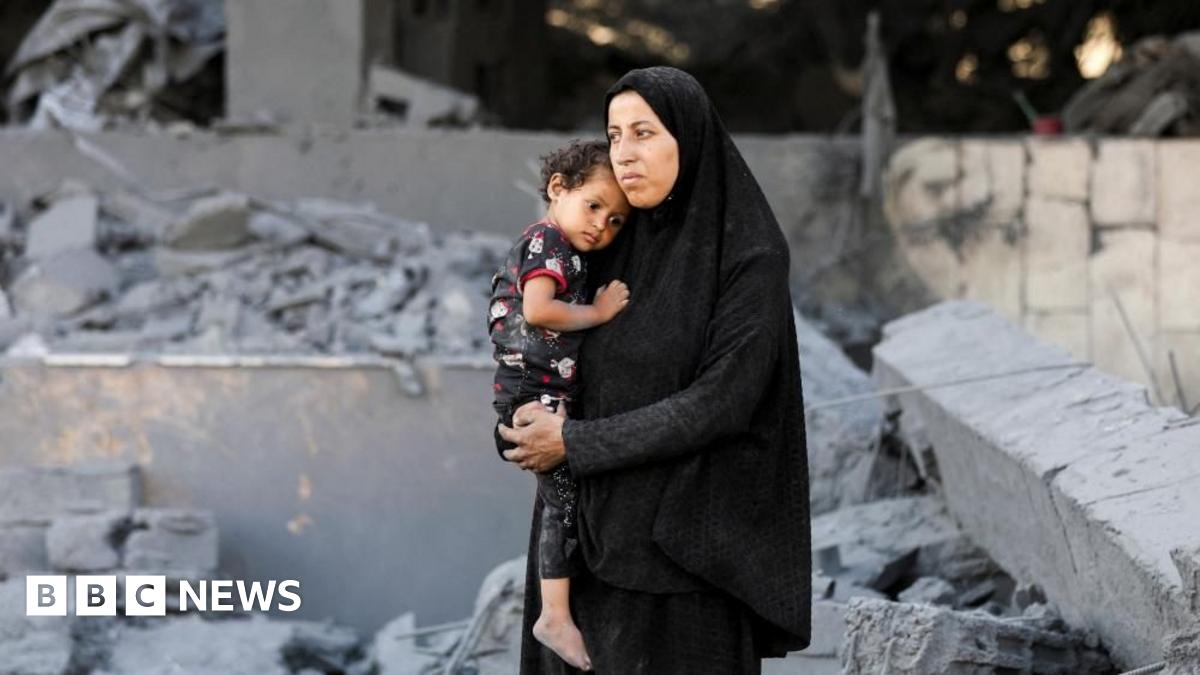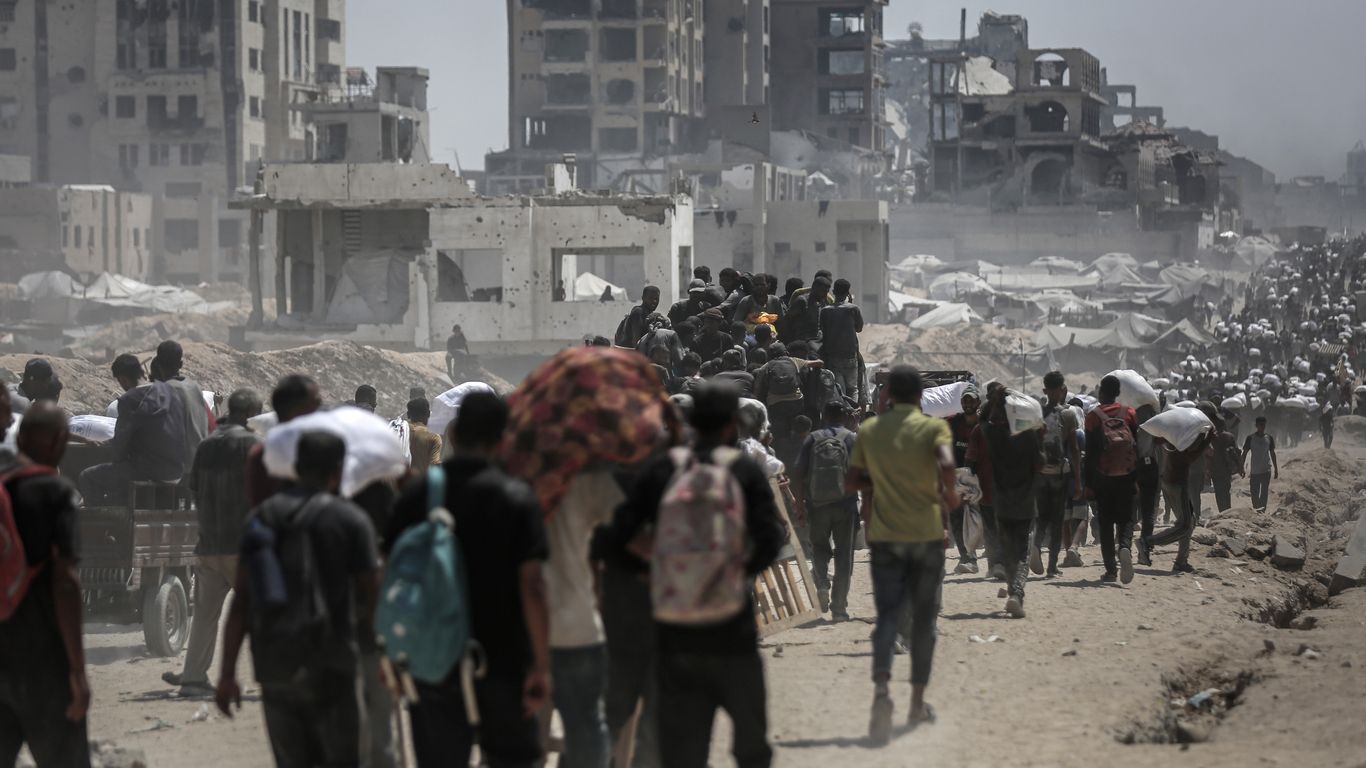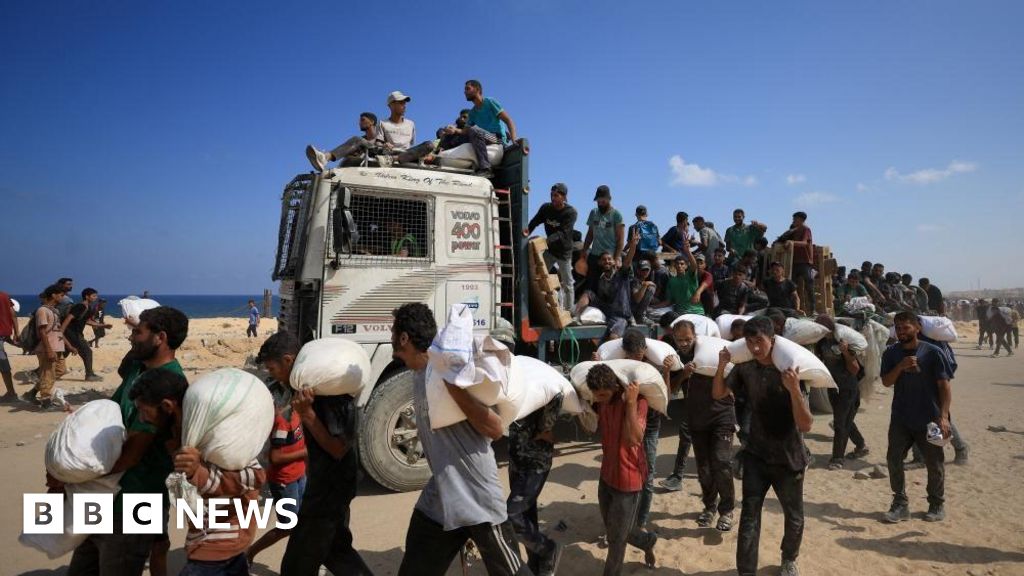United Nations Accuses Israel of Genocide in Gaza

Introduction
The United Nations' Human Rights Council has released a report accusing Israel of committing genocide in Gaza. This news comes as part of a growing chorus of international voices calling for an end to the violence and punishment for those responsible.
Key Details
The report, issued Tuesday by a team of experts commissioned by the U.N., details the devastating impact of Israel's actions in Gaza. It calls for the international community to take immediate action to stop the genocide and hold those responsible accountable. The report also highlights the urgent need for humanitarian aid in the region, as the ongoing violence has left thousands of civilians without access to food, water, and medical care.
Impact
This report serves as a powerful plea for the international community to take action and end the ongoing violence in Gaza. It also sheds light on the dire humanitarian situation in the region, which has been largely ignored amidst the political turmoil. As an expert SEO blog writer, I urge all readers to share this information and continue to raise awareness of the ongoing crisis in Gaza. It is up to us to demand accountability and work towards a resolution for the sake of the innocent civilians who are suffering the most.
About the Organizations Mentioned
United Nations
The United Nations (UN) is a pivotal international organization established in 1945, following the devastation of World War II, with the primary goal of maintaining global peace and security, fostering international cooperation, and promoting social progress. The UN Charter, signed by 51 founding member states, including the United States, the United Kingdom, China, and the Soviet Union, laid the foundation for this ambitious endeavor[1][3]. ## History and Structure The UN was born out of the failures of its predecessor, the League of Nations, which failed to prevent World War II. Key planning meetings, such as the Dumbarton Oaks Conference in 1944, defined the UN's structure, which includes the General Assembly, the Security Council, the Economic and Social Council, the Trusteeship Council, the International Court of Justice, and the Secretariat[1][6]. The Security Council, with five permanent members (the United States, China, France, Russia, and the United Kingdom), holds significant influence due to its veto power[2]. ## Key Achievements Over the years, the UN has played a crucial role in conflict resolution, human rights advocacy, and sustainable development. Notable achievements include the establishment of the Universal Declaration of Human Rights in 1948 and the implementation of numerous peacekeeping missions worldwide[3][4]. The UN has also been instrumental in addressing global challenges such as climate change and pandemics through its various programs and agencies. ## Current Status Today, the UN comprises 193 member states, with its most recent addition being South Sudan in 2011[5]. The organization continues to evolve, addressing emerging issues like digital governance and cybersecurity. Despite challenges, the UN remains a cornerstone of international diplomacy and cooperation. ## Notable Aspects The UN's work is not limited to politics; it also impacts business and technology through initiatives that promote sustainable development and digital inclusion. Its role in setting global standards and fostering international cooperation makes it a significant player in shaping the
Human Rights Council
The **United Nations Human Rights Council (UNHRC)** is the primary intergovernmental body within the UN system dedicated to **promoting and protecting human rights worldwide**. Established on March 15, 2006, it replaced the discredited United Nations Commission on Human Rights to enhance effectiveness and credibility in addressing human rights issues[1][4][7]. The Council is headquartered in Geneva, Switzerland, and consists of 47 member states elected by the UN General Assembly for staggered three-year terms, ensuring regional representation[1][4]. The UNHRC's core functions include **investigating allegations of human rights violations**, addressing thematic issues such as freedom of expression, women's rights, LGBT rights, and minority protections, and conducting country-specific reviews. Its most innovative mechanism is the **Universal Periodic Review (UPR)**, which evaluates the human rights records of all 193 UN member states every four years, promoting transparency and accountability through a cooperative, state-driven process[2][3][5]. The Council also appoints independent experts, known as Special Rapporteurs, who monitor and report on specific human rights situations or thematic issues without UN remuneration, acting as the "eyes and ears" of the Council[3][5]. It can establish commissions of inquiry and fact-finding missions to investigate urgent human rights crises, bolstering international responses to abuses[2][3]. Despite its crucial role, the UNHRC has faced criticism for including member countries with questionable human rights records and alleged political biases, particularly concerning Israel. This has affected the engagement of major countries like the United States, which has fluctuated between membership and withdrawal in recent years due to concerns over perceived bias and ineffectiveness[1]. For those in business and technology sectors, the UNHRC's recognition of rights such as access to a clean and safe environment (first recognized in 2021) and its evolving mandates on digital rights and equality underscore its growing relevance in global governance


















